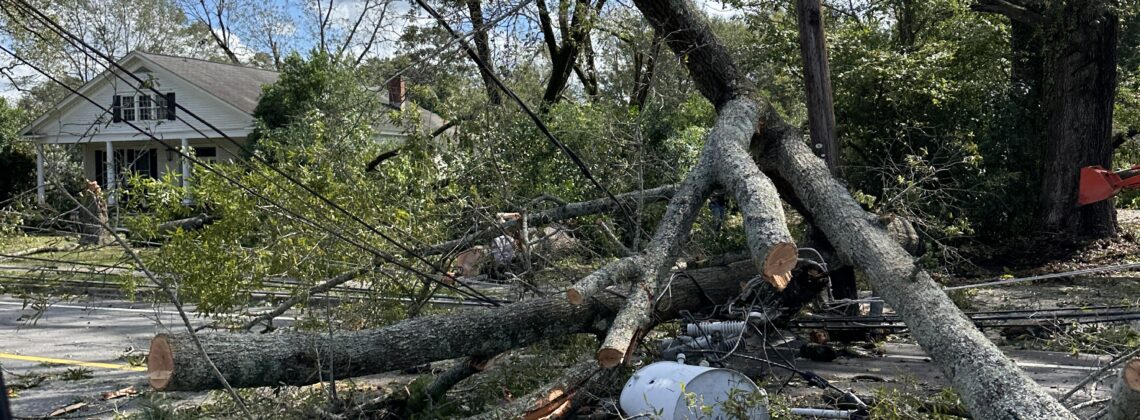
Or badges and uniforms.
Some wear Carhartts, work boots, and hard hats. They may not have time to eat properly, arrive unshaven and disheveled, and sometimes carry a certain odor from long hours of work. They come from out of town and invade our community like an army of misfits, wielding chainsaws, hand tools, bucket trucks, cranes, and electrical equipment. We don’t know their names, and we might not even know where they’re from. But they’re here, in force.
Some are your neighbors—the ones you may barely acknowledge with a casual wave as you drive by. But they’re the ones who step up when you need help. Whether it’s manual labor or something as simple yet remarkable as showing a movie on a projector outside their home and inviting everyone. It could be the neighbor who checks in on you or offers to grab supplies during a run to where the devastation ends.
Sometimes it’s the family member of a neighbor, helping out their own, who extends a hand to you with supplies or a few encouraging words.
Let’s not forget the small, locally owned businesses—those who leave their damaged homes to open their shops and serve the community. The service companies that rush to get back up and running, providing the services we rely on. City workers who communicate and work tirelessly to restore some level of normalcy. Restaurants that pull together bottles of propane and battery-powered lights to cook food for the community—often free of charge. Those same restaurants feeding our army of misfits to keep them going. And our churches, out in the streets cooking and giving food away to anyone in need.
We in Harlem have suffered a devastating blow, along with the CSRA and many other communities from Florida to Tennessee, North Carolina, and Virginia. I can’t say for sure how other places are coping, but I’d like to think it’s the same.
Remember who was there for you when you needed it most. And as things calm down and normalcy begins to return, take a moment to thank your neighbors. Support these small businesses. And seek out non-profits that help the national linemen who come in to do the work that restores our lives.